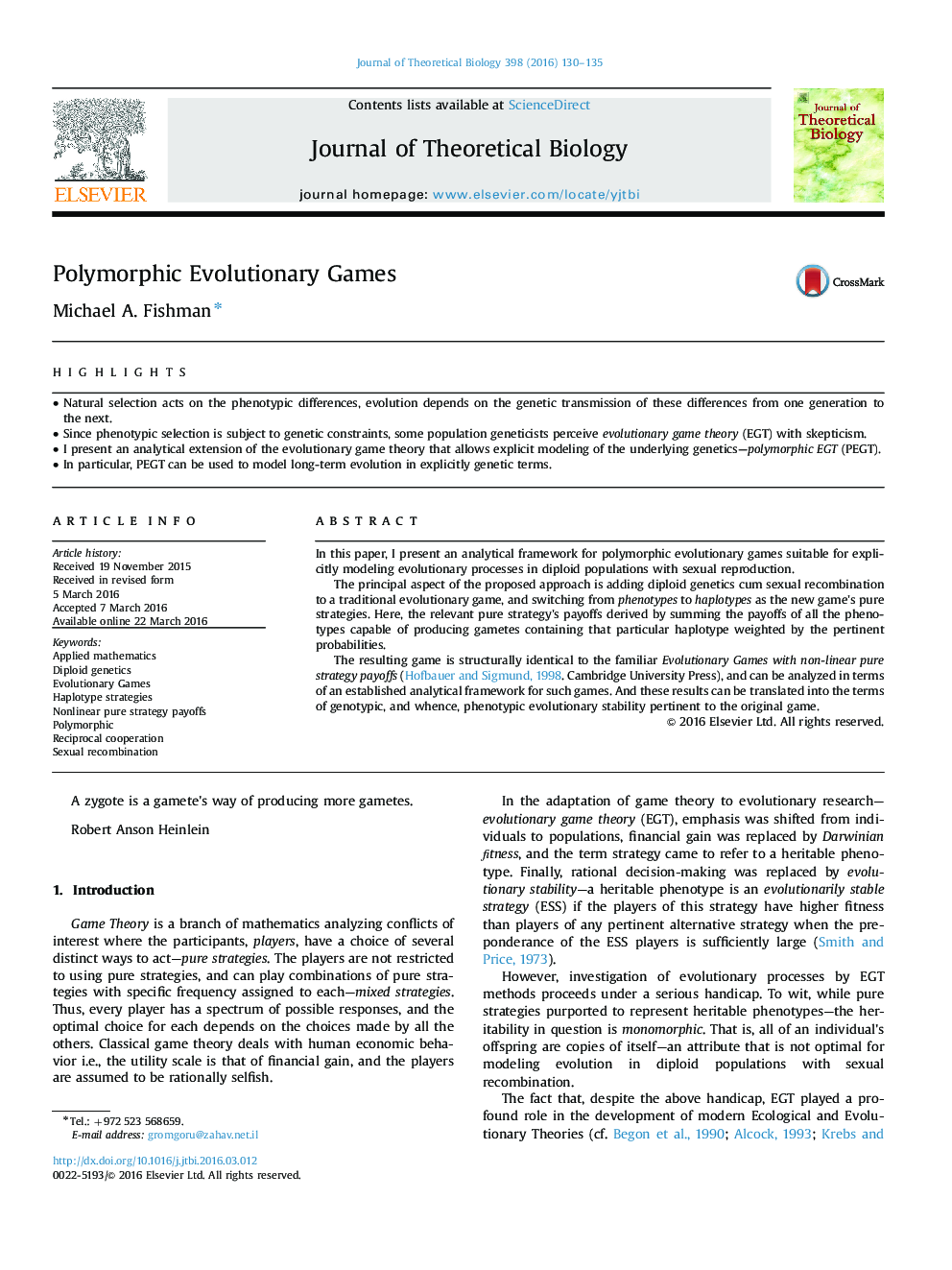| Article ID | Journal | Published Year | Pages | File Type |
|---|---|---|---|---|
| 4495824 | Journal of Theoretical Biology | 2016 | 6 Pages |
•Natural selection acts on the phenotypic differences, evolution depends on the genetic transmission of these differences from one generation to the next.•Since phenotypic selection is subject to genetic constraints, some population geneticists perceive evolutionary game theory (EGT) with skepticism.•I present an analytical extension of the evolutionary game theory that allows explicit modeling of the underlying genetics—polymorphic EGT (PEGT).•In particular, PEGT can be used to model long-term evolution in explicitly genetic terms.
In this paper, I present an analytical framework for polymorphic evolutionary games suitable for explicitly modeling evolutionary processes in diploid populations with sexual reproduction.The principal aspect of the proposed approach is adding diploid genetics cum sexual recombination to a traditional evolutionary game, and switching from phenotypes to haplotypes as the new game׳s pure strategies. Here, the relevant pure strategy׳s payoffs derived by summing the payoffs of all the phenotypes capable of producing gametes containing that particular haplotype weighted by the pertinent probabilities.The resulting game is structurally identical to the familiar Evolutionary Games with non-linear pure strategy payoffs ( Hofbauer and Sigmund, 1998. Cambridge University Press), and can be analyzed in terms of an established analytical framework for such games. And these results can be translated into the terms of genotypic, and whence, phenotypic evolutionary stability pertinent to the original game.
